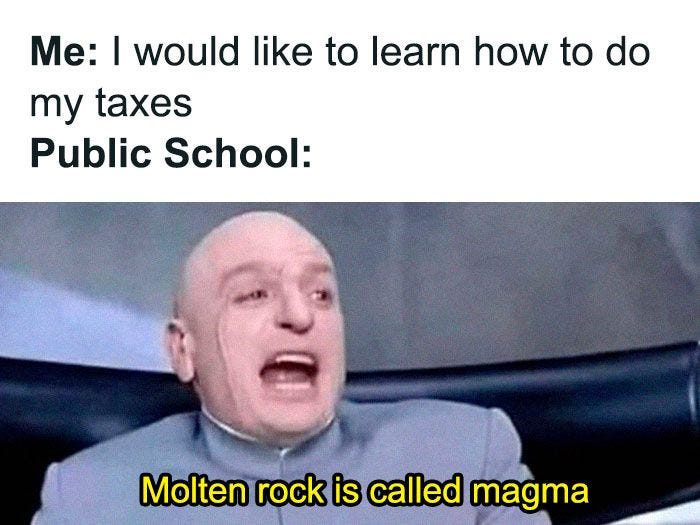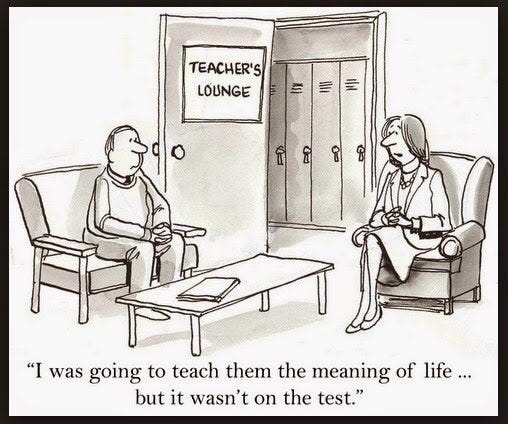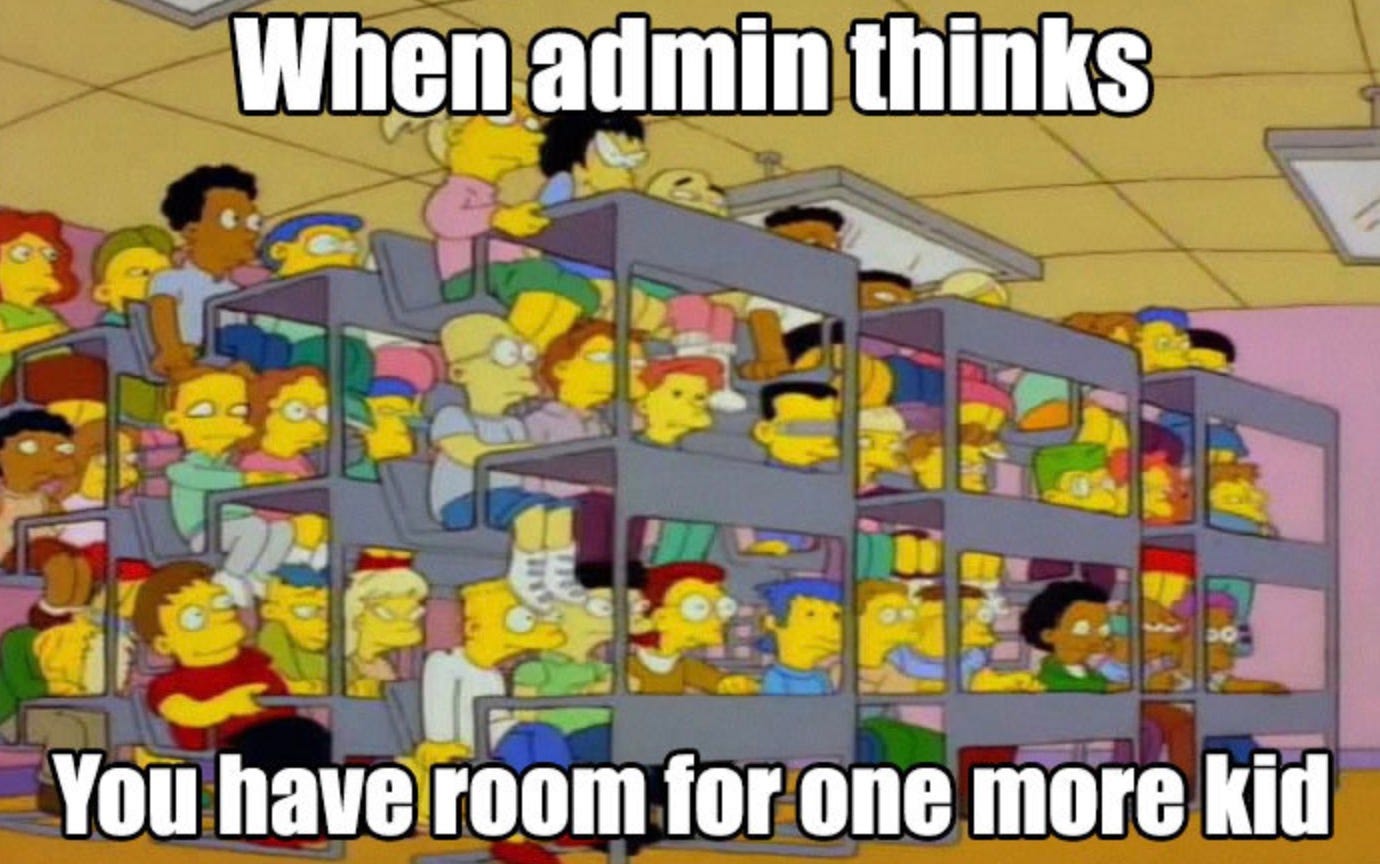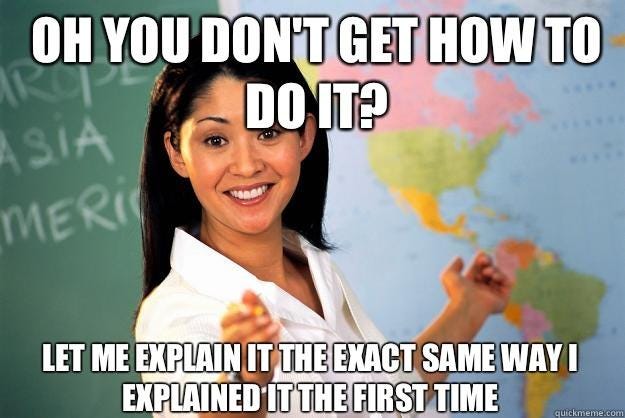In defense of public educators
The reasons public schools fail at language acquisition
Welcome, aspiring polyglot! With all the talk of reforming education in the US, I thought it might be worthwhile to examine why public education in the US fails with regards to language acquisition. By and large I don’t really blame individual educators for this failure. For the most part, all the educators are trying to do is hit metrics given to them by the districts. These metrics have more to do with attendance and test scores than they do successfully speaking a new language.
Working with what they have
Standardized tests are a good way to measure students understanding of various topics. Well, they can be, at the very least. However, when it comes to foreign languages things have to be done in a slightly different way if you want to see success. The reason isn’t because it’s impossible to test someone’s linguistic abilities with a standardized test. Rather the types of things that can be measured often don’t move the needle when it comes to speaking a new language.
Where you might get docked a point or two for getting the gender of a word incorrect on a test, in real life you will be understood and can continue on with your conversation. In the rare case that someone does stop you to correct you, you will walk away knowing something you didn’t and likely never make the same mistake again. A red mark on a piece of paper that you will never look at again does not have the same staying power as being embarrassed in a conversation.
The approved curriculum is often centered around information. This can be good, but when it comes to languages there is far more than conjugations and declensions. Yes, of course those things are important, but they are only part of the battle and focusing on them ends up creating a generation, or three, of people who think language learning is a waste of time. Or worse, they believe the lie that because they are now older it isn’t worthwhile to even try.
By far the biggest pain point for the public education system is that teachers are forced to teach to the class’s weakest link. Being a weak link is not a bad thing. In just about every math class I have ever been in I have been the weak link. But when the teacher is forced to cater to the worst student in the class, it comes at the expense of every other student. Large classrooms, especially ones that are mixed ages, are probably the worst places for language acquisition.
Groups versus individuals
In both high schools and universities across the United States the goal is to get the highest number of students to pass the class. Passing a class is quite different from speaking to native speakers, though. From my perspective it is as simple as having incorrect goals and perverse incentives. A shift in goals from passing classes to confidently using a new language would change a lot, but then it is far more difficult to measure success.
Furthermore, when classes are larger than ten let alone thirty students trying to hit the students’ interests is next to impossible. Since it seems untenable to take the students’ interests into account, most teachers tend to fill the time and space with their own interests. While it is understandable that this happens it rarely serves the students. At the end of the day, no matter how “with it” a teacher is, they can never truly see things from the students’ perspectives.
Even when a teacher does amazingly well at choosing content, it will only ever speak to at maximum 80% of the students. This leaves 20% of the students, many of whom are perfectly capable of speaking a new language in the same time frame as the 80%, wanting more. Again, I don’t blame the teachers entirely for this. But, at the end of the day, by filling the students with the teacher’s voice they rob the students of the opportunity to find their own voices.
Giving people a voice
Individualized education is advantageous in almost every case, but language learning is probably the area where this is most self evident. Being able to follow every one of your interests to your heart’s content rather than writing essays on a short story you won’t ever read is powerful. Not only that, but when you do it for long enough you quickly begin to build the skills requisite to develop your own content library that you can revisit indefinitely over time.
One of the things I warn all of my students of is getting comfortable with my voice. Learning to understand a language is far more than learning to understand it when spoken by one person. How do I know? I fell into this very trap. When I was living in Costa Rica I felt so confident with my Spanish because I could understand almost everything my host mom said. Fast forward one week and I was smacked in the face by reality walking into the classroom for the first time.
This goes beyond tone, accent, and cadence. Students will often adopt the linguistic mannerisms of their instructors. This, in essence, is robbing students of the opportunity to find their own voice. While entertaining for any instructor, who doesn’t like to hear people picking up their mannerisms, it is ultimately a disservice to the students.
When students find their voice they build up mechanisms to continue their language acquisition indefinitely which should be the goal of any second language instructor. Finally, public education is terrible about continuing education. Languages more than anything require consistent effort. Not only that, but even with one’s own native language there will always be room to improve. It is not the only problem, but it is the nail in the coffin for public education in the US with regards to second language acquisition.
Conclusion
It’s hard for me to not be irritated with the systems in the United States. Almost daily I have a conversation with someone that tells me they never wanted to try learning a new language again after their experience in the public system. However, I also don’t want it to seem as though I blame all of the teachers who work within the system for the incentives that are placed upon them. Ultimately, my goal is to give people the tools to take their education into their own hands.
Unlearning the things that were given false importance in school is incredibly difficult. Especially without ever having had the opportunity to speak to people in broken sentences. Without the experience of failing in a safe place like a classroom, the fear of failing outside grows exponentially. But it is almost certainly going to turn out better than whatever scenario you have created in your head. Forging ahead on your own will be difficult, but you can do difficult things and be great. So get out and do some difficult things and become great.
Requests
If you have anything you would like covered you can reach out to me on X, Instagram, or at odin@secondlanguagestrategies.com.
Additional Resources
Don't want to spend time playing catch up? Pick up the 3 Months to Conversational book now available on Amazon! 3 Months to Conversational
For more long form content be sure to check out the website and the FREE Language Learning PDFs we have available!
Subscribe for new content on YouTube and TikTok!
Learning Spanish? We have begun aggregating resources in you Spanish Resource Newsletter!
Don't forget to pick up your very own French Language Logbook or Spanish Language Logbook








Great write up! You touched on it some, but I would emphasize that public education has difficulty in highlighting real-life examples of subject applications. I never spoke French until a decade AFTER my last class. Simply making a semester or two of language a graduation requirement also makes it a means to an end.